
Writer
Nakadai is an English teacher at a local school. He’s put-upon like the patron figure of dozens of films and televisions shows. Viewers who are especially fans of Nakadai will appreciate how the actor comically rants about here. His home life is almost disastrous, with a ditzy (but attractive) wife, three young children, a loud school nearby that’s controlled by a corrupt businessman he loathes, and frequent visits from layabout friends. And the grey-furred, green-eyed cat!
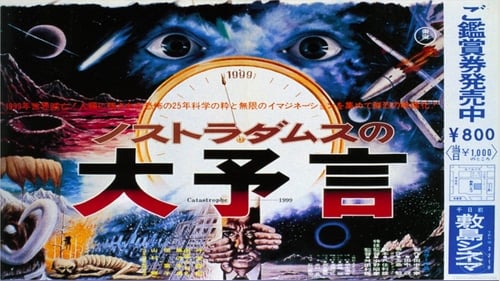
Writer
Professor Nishiyama, after studying and interpreting the prophecies of Nostradamus, realizes that the end of the world is at hand. Unfortunately, nobody listens to him until it is too late. As the effects of mankind's tampering of the earth - radioactive smog clouds, hideously mutated animals, destruction of the ozone layer - rage out of control, the world leaders hurtle blindly toward the final confrontation. The film sparked controversy in Japan and was subsequently pulled out of circulation, with no official video release of the uncut film.

Writer
The struggles of a low-ranking samurai (Nakamura) coming to terms with the end of the Tokugawa shogunate and the end of Japan's feudal age with the 1868 Restoration.

Writer
The story, set in the Heian era, depicts the conflict between Korean painter Yoshihide (Nakadai) and his Japanese patron, the cruel and egotistical daimyo Horikawa (Nakamura). It is based on the 1918 short story Hell Screen by Ryūnosuke Akutagawa.
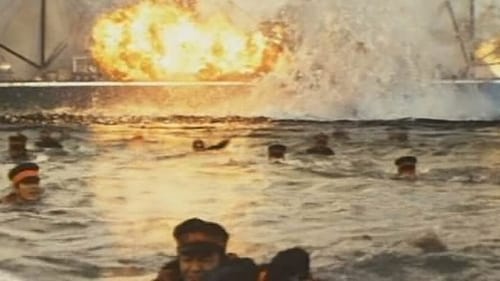
Writer
Japan and Russia clash in what comes to be known as the Russo-Japanese War. An attempt by the Japanese fleet and army to take Port Arthur fails, and a Russian fleet bears down on the Sea of Japan. Admiral Heihachiro Togo sends his fleet to confront the Russians, with results which stun both nations. Meanwhile, Major Genjiro Akashi makes secret negotiations with the Bolshevik revolutionaries in Russia, negotiations that have repercussions far beyond the conflict at hand.

Writer
Film directed by Kenji Misumi.
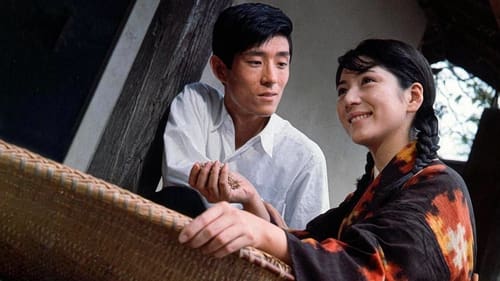
Screenplay
In 1943, Japan is amidst the Pacific War. Sobei Sonoda is one of the wealthiest landowners of the San'in region. His land spread for miles, as far as the eye can see. People treated him with respect. But even the richest must think about the future. One day, he decides to arrange a marriage between his only son, Junkichi and the daughter of an even more powerful family. Sobei, hoping to benefit from this union, soon discovers that his son was in love with a lower class girl.

Screenplay
The ghost of a samurai's wife takes revenge on her husband.

Screenplay
Ayako Wakao won the Blue Ribbon and the Kinema Jumpo for this film.

Screenplay
An original warrior directed by Toshio Takagi, directed by Eisuke Takizawa of “Kiriko's Tango” by Toshio Yasumi, a comedy, cheerful widow. The photo was taken by Minoru Yokoyama from “Asakusa no Toko Odoriko Monogatari”
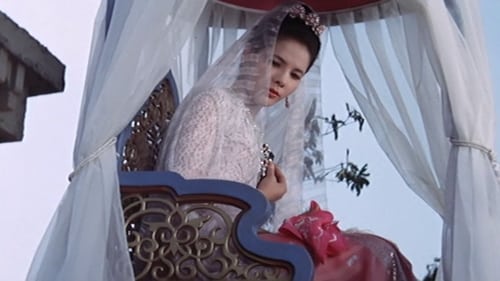
Story
An adventurous and daring sailor sets sail to the castle of an ailing king to stop an evil premier, hungry for power and wealth, from succeeding the throne and marrying the king's beautiful daughter. Along the way, with the help of some courageous rebels and a lustful wizard, he must overcome the powers of a bewitching witch, a band of ruthless pirates, and the castle's Imperial guards. He must also free those kidnapped into slavery and restore the king's reputation.

Screenplay
Nine maids serve the household of a writer and his wife. The couple treat their maids like daughters and marry them off to eligible men. So, they are forever looking for new maids. As the years go by maid servants become hired help and more bossy and independent, so Chikura and his wife find themselves adjusting their lives to keep up with changing times.

Original Story
Ensemble comedy.

Screenplay
One of many adaptations of "Onna no isshō", this time by Yasuzo Masumura as a starring vehicle for famed actress Machiko Kyo.
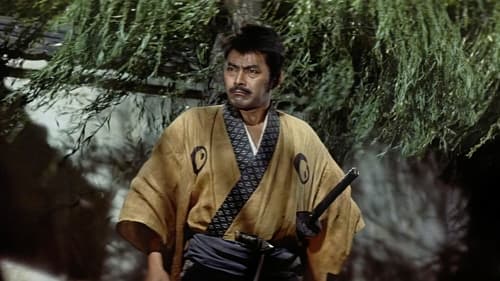
Screenplay
The story tells of a group of samurai who were left leaderless (becoming ronin) after their daimyo (feudal lord) was forced to commit seppuku (ritual suicide) for assaulting a court official named Kira Yoshinaka, whose title was Kōzuke no suke. The ronin avenged their master's honor after patiently waiting and planning for over a year to kill Kira. In turn, the ronin were themselves forced to commit seppuku for committing the crime of murder.

Screenplay

Screenplay
This Japanese film speculates on the events which lead the U.S. and the Soviet Union into a nuclear Armageddon.

Screenplay
During Japan's Warring States period three young Tokugawa vassals head their separate ways after Takeda Shingen's forces overran their castle. When they next meet they have all joined opposing sides.

Screenplay
Story of a woman, Saiko, who divorces her doctor husband when she is given a baby by a stranger who claims it is the husband's child. Saiko embarks on an affair with her cousin's husband, but a crisis threatens when she discovers that her ex-husband is about to remarry.
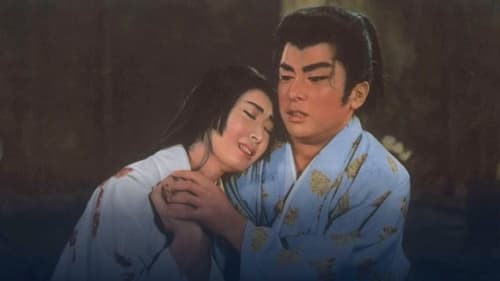
Screenplay
In 17th century Japan, Young Lord Masato returns after years abroad to find everything changed: his peace-loving father has died in what he soon finds to be mysterious circumstances, and his mother's married to his uncle, whose ruthless ambition is causing turmoil in the kingdom. Not knowing who to trust, Masato feigns madness, vowing to get to the truth, even though his act causes distress to the girl he loves, who's waited for him all these years. The ghost of his father turns up now and then to show him the way. Meanwhile a peasant revolt is brewing... It all ends tragically.

Screenplay
In this Japanese drama, a village girl goes to Tokyo and becomes a hooker to support her ailing mother. While there she meets an unmarried teacher (at least he says he's unmarried) and falls in love. When she learns that he lied and is married to a woman whose child was fathered by another man, she is crushed. He returns to his wife. The woman becomes more distraught when she learns her uncle has misused the money she has sent. As the final straw, her mother dies, and the girl becomes sick.

Screenplay
The first story concerns an attractive young woman who works in a Tokyo nightclub. Her plan for a solid financial future has a double whammy. In the second story, a beautiful young woman is employed by an unscrupulous real estate agent to convince male clients to invest in worthless property. The last story is about a widowed geisha who has no real financial worries and who falls in love with a forger.

Screenplay
Heinosuke Gosho movie
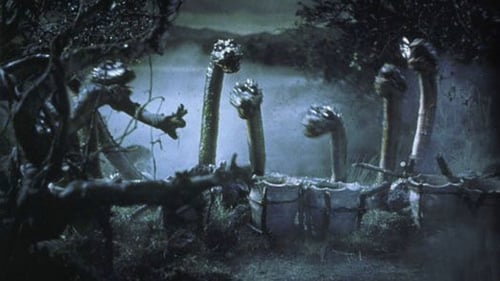
Writer
The legend of the birth of Shintoism. In Fourth Century Japan, the Emperor's son Ouso expects to succeed his father on the throne, but Otomo, the Emperor's vassal, prefers Ouso's stepbrother, and conspires to have Ouso die on a dangerous mission he has contrived. But Ouso prevails in the mission and returns to his father's castle under a new name, Prince Yamato Takeru. Otomo plots to have the Prince sent into even greater danger, but Otomo is unaware that the gods have favored the Prince and the outcome is far from what any of them expected.

Screenplay
The monologue and mysterious death of a man who survived and returned from Iwo Jima. A newspaper reporter writes an article about "The Man from Iwo Jima" asking the people who were close to him about his character and the painful memories off all those involved.

Writer
Story of a romance between a middle-aged journalist and a young woman.

Adaptation
Adapted by Yasumi Toshio and directed by Toyoda Shiro, this is a literary work based on a full-length novel of the same name published by Shiga Naoya of the Shirakaba School.

Screenplay
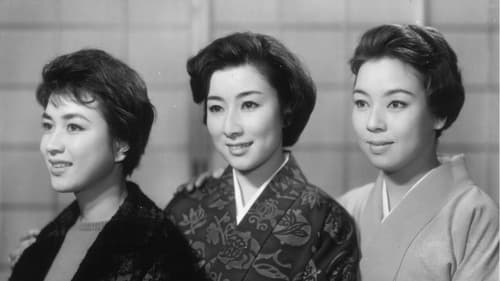
Screenplay
1959 adaptation of Junichiro Tanizaki's novel.

Adaptation
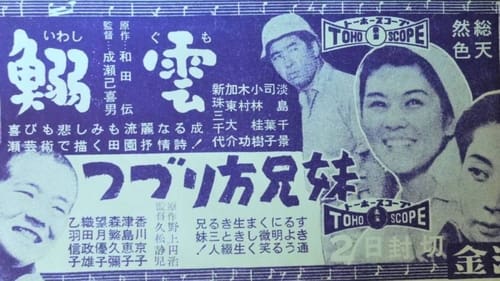
Writer

Screenplay
A longtime hotel employee (Morishige) struggles to bring his old-fashioned ryokan in line with postwar Japanese business practices.

Screenplay
Based on the novel by Toyoko Yamazaki.

Screenplay
Japanese drama film.
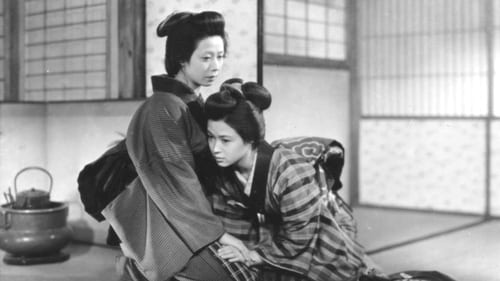
Writer
Set in the 1860s, the final years of the Tokugawa Shogunate, The Fireflies focuses on Tose (Awashima Chikage), the mistress of the Teradaya, a small inn in the Kyoto suburb of Fushimi. She does not have an easy life. Her husband, Isuke (Ban Junzaburo), is a wastrel who fancies himself a kabuki singer and who is obsessed with cleanliness. Her mother-in-law, Sada (Miyoshi Eiko) dislikes her because of her humble origins (her family are farmers) and because she fears that she will inherit the inn instead of Sugi, her daughter. Sada's hopes for Sugi, however, are dashed when she runs off with a con artist and leaves her child behind for Tose to take care of. When Sada becomes seriously ill, it is Tose who nurses her. On her deathbed, Sada asks her daughter-in-law's forgiveness. Meanwhile Isuke spends most of his time with a mistress he has taken, forcing Tose to manage the inn by herself

Screenplay
Comedy based on the writings of Ango Sakaguchi.

Screenplay
Roar and Earth

Screenplay
A sensitive young woman aged 22 fell in love with a middle aged man who was troubled by his unfaithful wife.

Screenplay
Nominated for Golden Berlin Bear.

Writer

Screenplay
It's a man's world. Shimamura, an artist, comes to this snowbound town to rejuvenate himself. He connects with Komako, a geisha he met on a previous trip, and it seems like love. She's the foster daughter of a local family, almost engaged to the family's son Yukio, now dying of consumption. He's tended by his sister Yuko who's angry at Komako for abandoning her brother. Shimamura returns to Tokyo but promises he will be back soon. In anticipation of his return, Komako breaks with her patron and her family loses their home. Complications arise when Shimamura doesn't come back as promised. Then Komako discovers that he and Yuko knew each other in Tokyo. Can Komako escape destiny?

Writer
A girl rebels against her mother, who runs a brothel in Yokohama, and attempts to find freedom on her own.

Writer

Screenplay
Shozo is plagued by the needs of his ex-wife and his current one, but prefers the company of his cat.

Screenplay
In 1906, after finishing a tough migrant job in the Philippines, Takichi has returned to Japan. He starts to work as a rickshaw driver, but his lover had died of an illness, leaving a baby girl, Hatsue. Hatsue grows up beautifully and falls in love with Shintaro. But Takichi objects to their relationship...

Screenplay
Lavish Japanese-Chinese coproduction based on an ancient Chinese legend about a man who falls in love with a snake goddess in human form.

Screenplay
Period romantic drama.

Screenplay
"A unique left-wing comedy by Yamamoto.... A travelling theater troupe, led by Umagoro Ichikawa, comes to play in a mining town, and manages to sell every seat. Before the play begins, however, a miners' strike is announced, creating an uproar. In addition, the players find they have been cheated out of their profits by a crooked impresario. The socially naive actors join together with the progressive union members to create a political 'strike drama,' and learn much from each other in the process." --Alan Poul, Japan Society
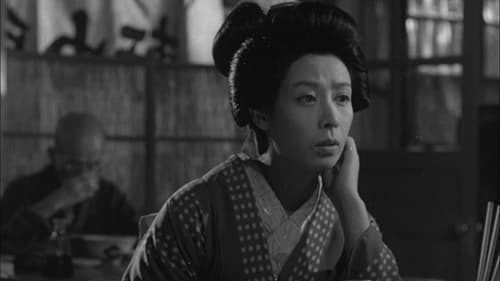
Screenplay
The story of a couple, a spoiled son and a down-to-earth girl, in Osaka in the early Showa era. The film won the prestigious Blue Ribbon awards for best director, best actor (Morishige) and best actress (Awashima), and the Mainichi Concours award for best actor and best screenplay (Yasumi Toshio). It ranked second (after Naruse Mikio’s Ukigumo) on the Kinema Junpō top ten films for the year.

Screenplay
Shuzenji Monogatari (The Mask and Destiny) is based on a 12th-century Japanese legend. An abortive royal romance leads to an escalating series of tragedies. The central character is a Japanese monarch who would prefer to live a humble existence as a maskmaker. Unfortunately, events -- and destiny -- are against him. When first released, Shuzenji Monogatari was held in far lower esteem than such recent Japanese films as Gate of Hell and Samurai. Nevertheless, the film was selected as an entry at the Venice Film Festival, possibly on the strength of its excellent production values.

Screenplay
A boy falls in love with a girl. Neither of them know that she's to be sold to a brothel.

Screenplay

Screenplay
Japanese comedy film.

Screenplay

Writer

Screenplay
Adaptation of the novel by Masao Kume.

Writer
A 1954 film.
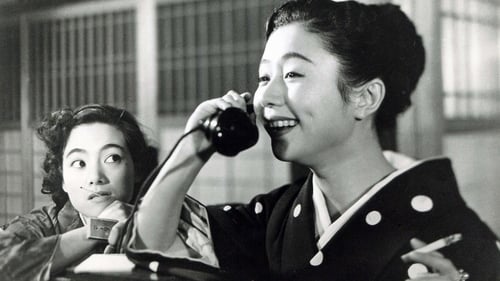
Screenplay
An Inn at Osaka, rarely seen outside Japan, follows the story of an insurance company executive from Tokyo, Mr. Mito, who is demoted to the Osaka office. He takes a room at a small inn and tries to rebuild his life. Notable for its exquisite framing and cinematography, An Inn at Osaka allows its complicated plotlines to disappear behind the minutiae of penury and humiliation that Mito and others suffer during the post-war economic and social reconstruction.
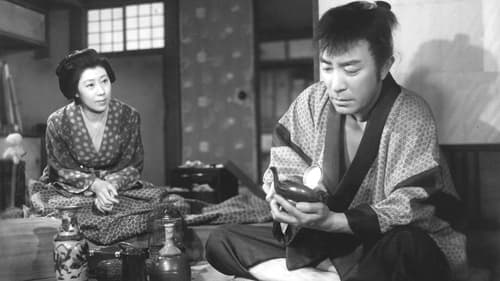
Screenplay
A gripping historical drama that follows the explosive growth of Katsu Kaishu, the hero of the Meiji era, and the interesting human image of his father, Kokichi, who lived for the common people, his neighbors and his children. A film about paternal and maternal love and conjugal love in the creation of mankind, about the healing power of which laughter and tears have. The work that became the last work of the giant star Tsumasaburo Bando.

Screenplay
The film is about the Yamato's suicide mission to Okinawa in March 1945 to defend the homeland threatened by U.S. bombers. Adapted from Mitsuru Yoshida's 1952 book "Requiem for the Battleship Yamato".

Screenplay
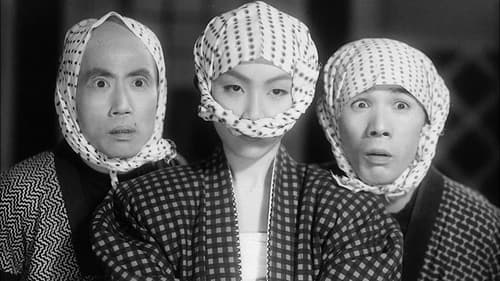
Screenplay
The story of a ghostly thief in Edo who calls himself the fireball guy.

Idea
Yukiko Nogami is rescued during a mountain blizzard by handsome forester Shinkichi, and the two subsequently fall in love. But when Shinkichi dies in an avalanche, Yukiko leaves the mountains in despair and takes a job in a bar where she becomes deeply involved in the personal lives of several of the patrons. One day she thinks she sees Shinkichi alive, but it turns out to be a gangster named Hayakawa, a man on the run who bears an astonishing resemblance to Yukiko's lost love. Against her better judgment, she is drawn to help Hayakawa, though clearly danger follows him.

Screenplay
A comedic retelling of the legend of the loyal 47 ronin.

Screenplay

Screenplay

Original Story

Screenplay

Screenplay

Screenplay
A high-born woman named Okuni travels around the country with Gohei, a samurai retainer who is in service to her. They are in search of Tomonojo, who has killed the man who was Okuni’s husband and Gohei’s master, and they cannot return to their lord’s home until they have fulfilled their duty of hunting down and killing Tomonojo.

Screenplay
A Japanese woman, the mistress of an American, falls in love with her servant.

Screenplay
Japanese comedy film.

Writer

Writer
Ikeuchi was captain of the K - University ice hockey team. The daughter Shikotsuko of Ginza 's western restaurant "Piccolo" was also a female student at K University and was a figure player. They had a dream of being dispatched to Oslo in the Olympic Games and were struggling in each way. Mizuno who runs a sports equipment store in Ginza, showed the geisha by guiding the junior's Ikeuchi and others to the shop of Shimbashi one day.

Original Story

Screenplay

Writer
A young lord joins gang of Robin-esque robbers.

Writer
Thriller drama by Kon Ichikawa

Screenplay
A young boy named Chomatsu (Misora Hibari) lives with an old man Denbei near the grounds of Asakusa temple as bell ringers. In their house is an Echigo lion mask, a memento of Chomatsu's deceased father. After several incidents of Echigo lion masks being destroyed in the area, a local kingpin Saheiji shows up at Denbei's demanded he hand over the mask, a request Denbei rejects out of pity for Chomatsu. However, after it is accidentally revealed that the mask contains an important map, Saheiji plots to steal the mask. Chomatsu gets involved after his mother makes a sudden reappearance that sends the boy on a roundabout journey that will reveal the truth about his family.
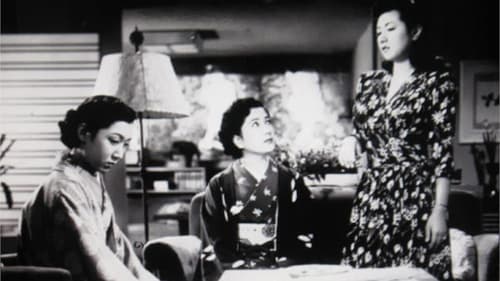
Screenplay

Screenplay

Screenplay

Screenplay
Saburo and Keiko fall in love with each other but the tide of war separates them.

Writer
A film by Kiyoshi Saeki

Writer
Woman melodrama by Shiro Toyoda

Screenplay
A grade school in Tokyo, where students curse and gamble, has a pond on-premises with one particular teacher who is in charge and takes care of it. The pond holds a number of carp, but someone is snatching them. Amidst the student, one lives with his mother in poverty. The mother works at a factory whose owner is a member of the parent-teacher association and asks her son to help her employer's son to help with homework. Her son is not happy spending time doing this. Finally one day the teacher finds out who is stealing the carp when the poor boy finds out and reports it. It is a child who is not attending the school.

Screenplay

Screenplay
A modern take on history with songs and comedy presented by Enoken (as Gonza), Fujiyama (as Sukeju), and Kasagi (Gonza’s wife Osaki).

Writer
Slice of life film centered around a couple of years in the life of a rural high school girl.
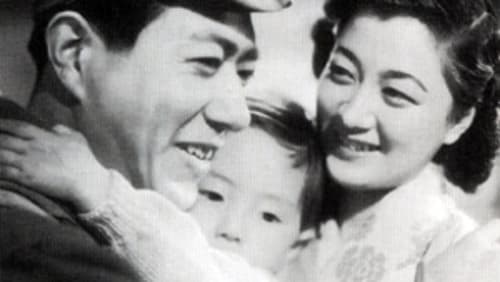
Writer

Screenplay
1947 Toho film directed by Tadashi Imai

Screenplay
Omnibus of love stories from 1947 directed by famous directors, featuring big stars.
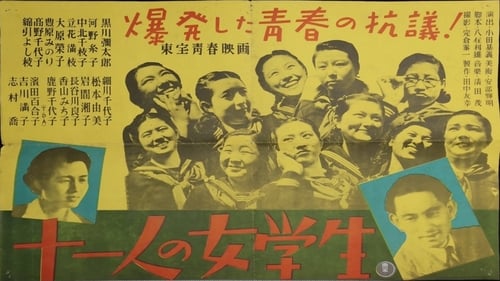
Writer

Writer
Tadashi Imai 1946 movie
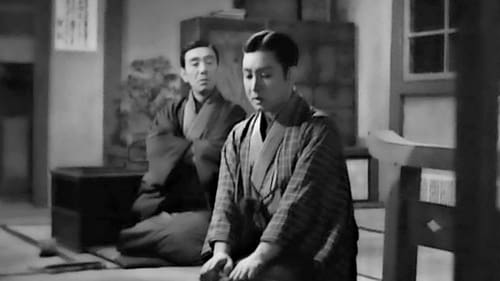
Writer
The Way of Drama unfolds in the world of kabuki in Osaka, but also addresses the politics of popular culture and the rivalry between theatrical styles like those used by amateur actors to dramatise contemporary events.

Screenplay
A small community in wartime Japan learn how to make do with less.

Screenplay
Young men endure challenging flight training in the Yokaren, a program feeding new pilots into the Army and Navy. By the time of the filming, the pressure of the war had led the government to shorten the training and expand the age range of the recruits. Yokaren was highly selective, and thus an object of great fascination and desire for boys and young men. In this Navy–sponsored film, Setsuko Hara plays the daughter of a family that often entertains recruits on their days off—a surrogate sister to many trainees. Her fragile younger brother aspires to join the program, but is rejected. With perseverance and much support from Hara and their mother, he surmounts his weaknesses and becomes a flier.

Writer
War-time jidaigeki by Eisuke Takizawa. Didn't find anything about it online, but Takizawa was a well-regarded director in his time. Akira Kurosawa worked as A.D. on several of his films.

Writer
A 1942 film.

Screenplay
Adaptation of a novel by Nobuko Yoshiya that was serialized in "Shufu no tomo" between 1939 and 1940.

Screenplay
Enoken's anachronistic take on the beloved (and already very funny) Edo-period novel "Shank's Mare," aka Tōkaidōchū Hizakurige, in which Yaji and Kita, two plebeian nobodies, have all sorts of strange and colorful encounters on the long road from Edo to Kyoto.

Screenplay

Writer
Japanese film based on the life of writer Ichiyo Higuchi (1872-1896).

Screenplay
Set in the late Edo period of the assassination of Dairo Ii, the sword and emotional romance that depicts the murderous world. The turmoil of the end of the Edo period is depicted through the nameless Ichii people, centering on the main character of the Hatamoto collapse that is drunk by the waves of the end of the Edo period.















































